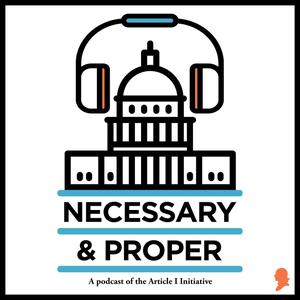🚀 From Google Podcasts to Moon FM in No Time: Your Hassle-Free Migration Guide
👉

Necessary & Proper is the official podcast of the Federalist Society's Article I Initiative. The Framers of the Constitution intended the legislature to be the most powerful branch of government. In its present state, as the government operates on a...
Your feedback is valuable to us. Should you encounter any bugs, glitches, lack of functionality or other problems, please email us on [email protected] or join Moon.FM Telegram Group where you can talk directly to the dev team who are happy to answer any queries.